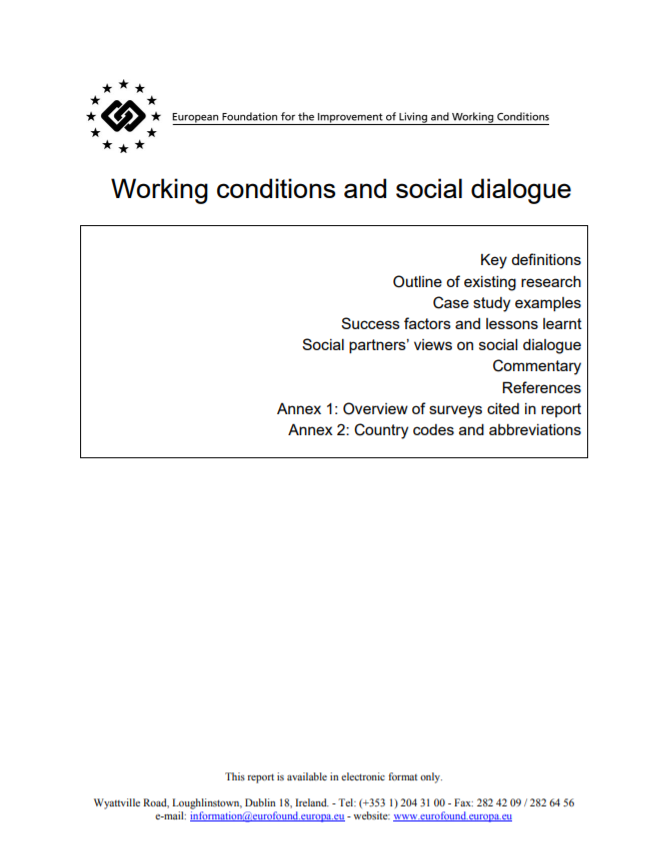This study covers the development of social dialogue in Indonesia from the end of the Suharto regime, in 1998, until 2015 and more specifically during the period that goes from 2004 to 2015. It is aimed at analysing specific examples of social dialogue taking place in the period in question, and assessing how the results of this dialogue amongst social partners has contributed to socio-econonomic development in Indonesia. The purpose of the analysis is also to highlight the importance of the “conditions” in which social dialogue can flourish and can be effective for development. These conditions are based on the freedom of association, collective bargaining, the willingness of social partners to engage in dialogue, and the supporting role of the State. The latter are “enabling conditions” for social dialogue to be relevant for socio-economic development in every country. The current study focuses its analysis on specific positive past experiences. However, it has to be noted that unfortunately the situation in Indonesia has recently changed dramatically. The country is experiencing a severe drawback in terms of respect of fundamental labour rights, resulting in a disruption of social dialogue. The International Labour Organisation’s (ILO) Convention No. 87 on Freedom of Association and Protection of the Right to Organise was ratified by Indonesia straight after the fall of the Suharto regime, and important progress was made in the country in the years following the transition period. However, these rights are currently under threat as illustrated by the arbitrary arrests and detention of trade unionists, imprisonment and fines issued to workers taking part in peaceful strikes and an inadequate legislation on freedom of association for civil servants.1 Other setbacks to social dialogue, over the last year, are those related to the minimum wage setting process. Until October 2015, minimum wages were negotiated through social dialogue. This changed following the introduction of a new law to calculate minimum wages through a formula based on inflation and GDP growth. The new law has undermined negotiations, rendering them superfluous, and threatens the remarkable progress achieved in the past years. It has also lead to a number of protest actions by the Indonesian unions in a struggle to reinstall dialogue.2 This of course is undermining the positive achievements previously reached, putting at serious risk the whole developmental and democratic process in the country. This study has therefore to be taken in its specific context as a snapshot of what social dialogue can achieve with the good will of its actors.
1. See the Provisional Record of the Report of the Committee on the Application of Standards of the 105th Session of the International Labour Conference (2016) pp.50-55
2. The International Trade Union Confederation has recurrently manifested its support to the struggle of the Indonesian workers and has continuously denounced violations of their rights, reported in its Survey of Violations of Trade Union Rights. As a result of the deterioration of rights, Indonesia has been downgraded, in the International Trade Union Confederation’s Survey of Violations of Trade Union Rights, from a rating of 4, which implies a situation of systematic violations of rights to a rating of 5, implying no guarantee of rights
To see the original document, click here.










